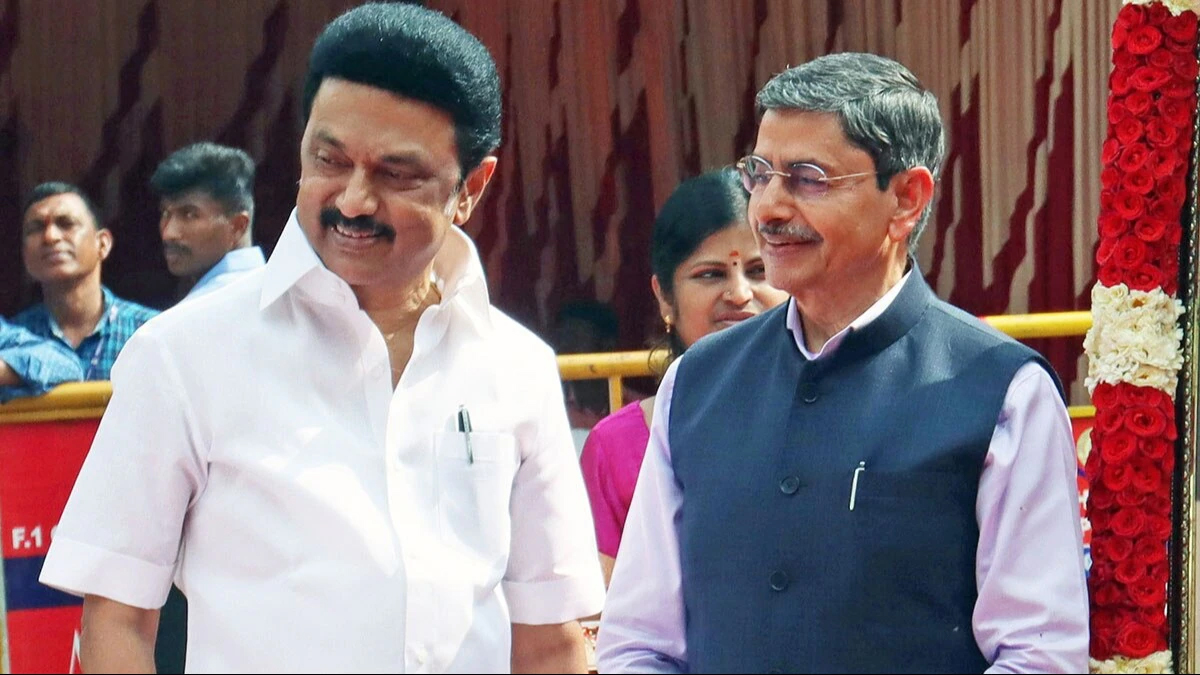Shiban Khaibri
Have you ever witnessed the constitutional role of a state Governor, an office traditionally held in high respect, being dragged into protests or openly showing emotion? For instance, the Governor of Tamil Nadu walked out of the Assembly without giving his address, while the former Governor of Kerala, Arif Mohamad Khan, accused Chief Minister Pinarayi Vijayan of plotting to physically harm him, even suggesting a conspiracy involving the ruling Left Front and groups like the SFI and PFI. Similarly, former West Bengal Governor Jagdeep Dhankhar was seen crying during a media interaction after speaking with victims of post-poll violence. These events, though astonishing, might reflect a growing trend of diminishing respect for the gubernatorial position under the pretext of preserving “the traditions and culture of our state” and promoting concepts like “elastic federalism” or “cultural autonomy,” often tailored to fit political whims. Such narratives, especially when echoed by our politicians on international platforms claiming that “India is not a nation but a union of states,” raise critical questions. What political advantage do these leaders seek by rendering the nation subordinate to the idea of a union of states? Does this not strike at the very definition of a nation, as in popular discourse, a nation embodies a country where diverse populations coexist under a shared government, customs, and culture?
When critically analyzed, this narrative seems rooted in the frustration of having a government in power that does not align with certain aspirations, even if the majority do not share that sentiment. Delving deeper, the premise suggests that a nation should not have its own administrative structures like a country typically does. The essence of a country is its ability to unify its populace, arising from this fundamental fact. Hence, blurring the lines between ‘nation’ and ‘country’ can confuse citizens and potentially weaken national cohesion, a trend that goes against the constitutional principles of the nation. Ironically, while they display a red-covered book—presumably a copy of the constitution—some actions contradict its core principles.
Those who claim to cherish the constitution seem alarmingly quiet when the National Anthem reportedly goes unplayed at the commencement of the Tamil Nadu Assembly session, an occasion that traditionally starts and ends with the Anthem. In protest, the Governor chose to walk out of the assembly—an extreme measure meant to send a strong message to stakeholders. It’s also worth noting that while the state may also play its state anthem, which is a well-deserved homage to Tamil culture, the utmost priority should be “nation first.” Cultural autonomy can only be genuinely safeguarded when the nation remains united, and this must not just be a theoretical aspiration but a practical reality.
However, does skipping our National Anthem indicate a disregard for it? Has our political landscape deteriorated to the extent that a symbol representing Bharat’s identity, unity, and patriotism becomes a subject of debate? Shouldn’t every citizen intrinsically honor it? Is it right that the act of standing for a minute during its recitation could be perceived as optional, or worse, be met with defiance? Adopted on January 24, 1950, the National Anthem is our identity, encapsulating our traditions, history, and beliefs. Our cultural heritage promotes unity in diversity, which the anthem beautifully embodies. Every region and state should be adequately represented but never at the expense of our National Anthem, which should never be secondary to regional anthems.
After more than seventy years, do we still have to affirm that the National Anthem holds a special place in our hearts? It symbolizes patriotism, reminding us of our nation’s beauty, glory, and independence—elements that have persisted through thousands of years of civilization. Having endured foreign rule for over 800 years until 1947, the anthem represents our sovereignty. Singing it together fosters unity and strengthens bonds among citizens as one cohesive entity. While there’s no objection to singing Tamil Nadu’s state anthem, an important and sensitive question arises: why should only the state anthem be emphasized at the expense of the National Anthem?
This is not the first instance of the Governor walking out, but the recent event is reportedly his third, with the state Chief Minister labeling it as “childish.” Conversely, the Raj Bhavan described the incident as “an insult to the constitution and National Anthem.” Respecting the National Anthem is among the fundamental duties outlined in our constitution, traditionally observed at the beginning and end of the Governor’s address in state legislatures. Despite this, when the Governor arrived, only the Tamil Thaai Vaazhthu (invocation to the Tamil Mother) was sung, even as he urged the Chief Minister and Speaker to play the National Anthem, only to be rudely rebuffed. This raises grave concerns and leaves the Governor in profound distress….
Is there a need for a better relationship between the state government and the Governor? Should an ombudsman-like authority be statutorily established to mediate disputes between the two? Such fears underscore the necessity for uniformity in practices governing both state and central governments. This controversy seems born from unwarranted pride, giving the impression that the National Anthem is being “imposed,” akin to the perceived “imposition” of Hindi in a state where it hasn’t found much acceptance, while other foreign languages like English flourish. How can we achieve national integration and unity with such inflexible approaches, which are crucial as we strive to emerge as a world power?
Our strength lies in cohesive unity, adherence to the constitution’s spirit, and effective coordination among different constitutional roles and institutions. It’s imperative that our political leaders contribute positively and not let iconic patriotic figures like Tukaram Omble bear the entire responsibility of shaping history. Actions such as rail blockades, roadblocks, indefinite strikes, walkouts, and similar protests, often justified as “constitutional rights,” serve only to hinder national progress. Can we continue to afford this disruption?


Leave a Reply